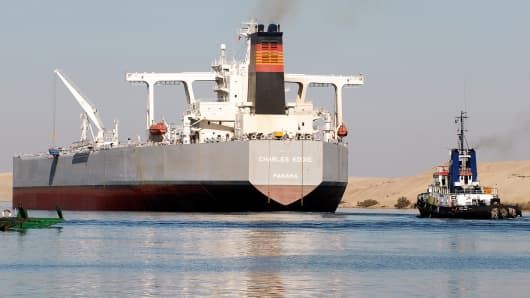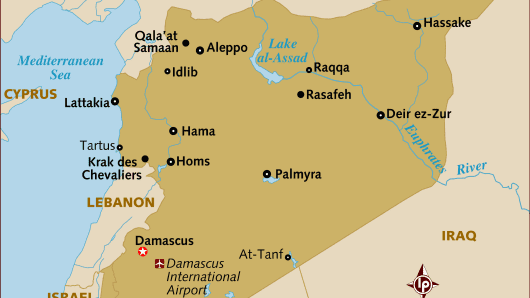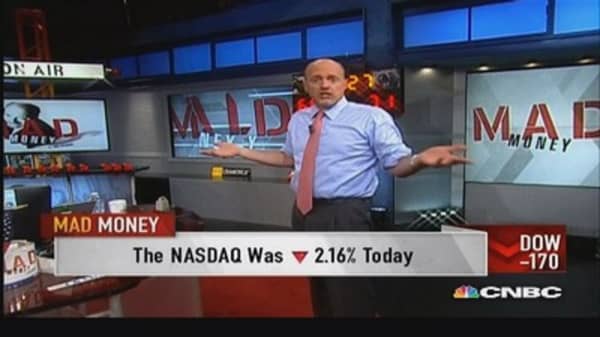WTI crude and Brent oil prices took another leap higher after the U.S. said Monday afternoon that the Syrian government attacked its own citizens with chemical weapons and that it must be held accountable. On Tuesday, U.S. officials told NBC News that the U.S. could hit Syria with three days of missile strikes, as early as Thursday in an attack intended more to send a message than topple President Bashar al-Assad's regime.
Syria is not a major oil producer, and it is not on a major oil route, but there are concerns that a U.S. strike would lead to some spillover effect in the region – or an act of retaliation, possibly on a Middle East oil facility, or as some other type of terror attack there or elsewhere. Cyber terrorism is also a concern, including from its ally Iran. On Tuesday, the New York Times website was inaccessible for some viewers, and a Twitter account for the Syrian Electronic Army claimed responsibility. Twitter also suffered a similar attack, and it said it was looking into it. The Syrian Electronic Army are pro al-Assad.
West Texas Intermediate crude closed up 3 percent at $109.01 per barrel, the highest close since February after the second biggest day of the year. Brent, the international benchmark, settled at $114.36 a barrel, up 3.3 percent.
Dennis Gartman, publisher of the Gartman Letter, said the pressure is on oil, particularly since the recent run up should continue to shake out shorts and could trigger margin calls.
(Read more: Stocks slide for second day amid Syria concerns)
"Our dog in the hunt died because of Eagle Ford, the Bakken and Marcellus," he said, pointing to well-known U.S. drilling areas. "The situation now is such that anybody whose short of oil the past several months finds themselves in a very uncomfortable position. Soon it becomes a game of margins."
Eurasia Group analysts say the most likely form of attack by the U.S. would be the launch of cruise missiles form U.S. warships in the Mediterranean. Experts say ending al-Assad's regime is not the objective of the U.S. and its Western allies, as that would leave the country and its weapons in the hands of a loosely knit group of rebels that include Al Qaeda.
"When you look at what the (Obama) Administration is looking to do, it's a very limited attack. It's not going to change the situation in the region right now. The really big issues there are Iraq and Libya where you have actual disruptive events going on. Libya is going to see continued instability," said Greg Priddy, director of global oil at Eurasia Group.
Priddy said the loss of oil from Libya and Iraq are significant but not enough to offset the trend of ample global supplies. Iran's exports have also been severely cut due to sanctions against it for its nuclear program. Strikes at Libyan oil facilities are responsible for the continuing lost volume of about 250,000 barrels per day from Libya, and in Iraq, the Kirkuk-Ceyhan pipeline is offline due to repeated attacks, cutting out 270,000 barrels per day. Priddy notes that Saudi Arabia boosted production to 9.8 million barrels per day in July and August.
(Read more: Allies draft plans for strikes against Syria)
He expects any strike on Syria to be narrow enough to avoid major disruptions in the oil market and not to cause a sustained breakout in prices.
Seasonal demand from refineries is dropping off, and at the same time non OPEC production in increasing, particularly from North America. Priddy noted that non OPEC production in July rose 570,000 barrels per day from June's level, with North America making up 280,000 barrels per day of that increase.






